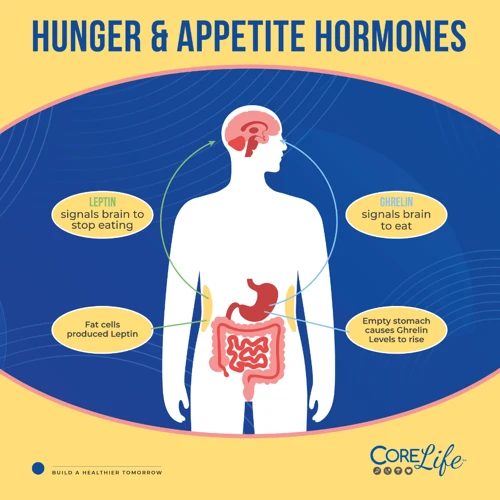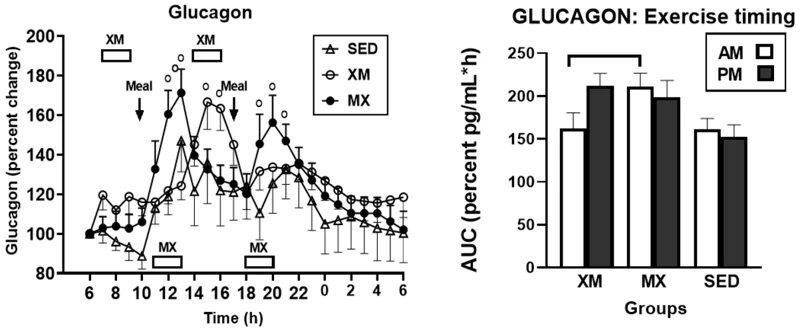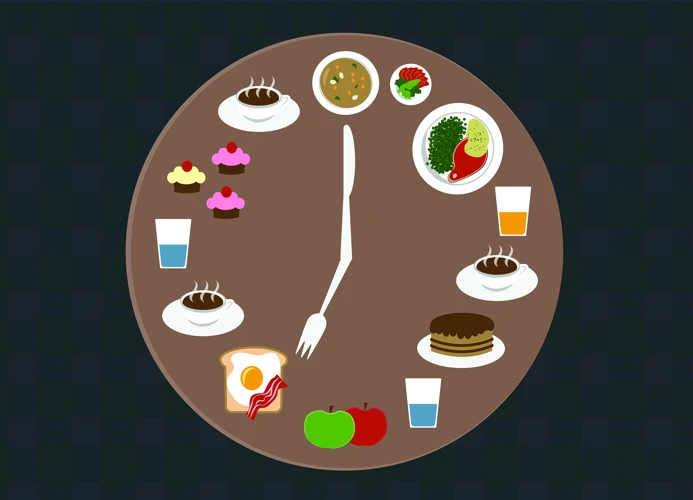Have you ever wondered why you feel hungry after a workout or why some people seem to have a faster metabolism than others? The relationship between exercise and our hunger and metabolism is a complex one that has been the subject of much research. In this article, we’ll delve into the science behind hunger and metabolism and how exercise can impact both. We’ll also explore the best times to exercise for optimal management of hunger and metabolism and provide additional tips for managing hunger and cravings while trying to lose weight. So, let’s dive in!
Understanding hunger and metabolism

When it comes to managing our weight and overall health, understanding our hunger and metabolism is crucial. Hunger is the natural feeling of wanting or needing food, while metabolism refers to the body’s processes that convert what we eat and drink into energy. Both hunger and metabolism are complex, influenced by various factors such as genetics and lifestyle choices. In this section, we will delve deeper into these two concepts to gain a better understanding of their impact on our bodies.
What is hunger?
Hunger is the feeling of discomfort or weakness caused by the body’s need for food. It is a physiological response that signals the brain when it is time to eat. There are several factors that contribute to hunger, including:
- Low blood sugar: When glucose levels in the blood drop, it triggers hunger signals in the brain.
- Hormonal imbalances: Hormones like ghrelin and leptin play a role in regulating hunger and appetite.
- Empty stomach: As the stomach empties, it sends signals to the brain to release hunger hormones.
- Circadian rhythms: Our body’s internal clock can affect hunger and appetite, causing us to feel hungry at certain times of the day.
Hunger can be a normal physiological response that occurs when the body needs fuel, but it can also be triggered by emotions and external factors like the sight or smell of food. Understanding the different factors that contribute to hunger can help individuals make more informed choices about their food intake and manage cravings more effectively.
What is metabolism?
Metabolism refers to the chemical processes that occur inside the body to maintain life. It involves the conversion of food into energy and the elimination of waste products. This process is controlled by hormones and enzymes.
Metabolism can be broken down into two categories: catabolism and anabolism. Catabolism is the breakdown of complex molecules into simpler ones, while anabolism is the building up of complex molecules from simpler ones. Both of these processes are necessary for the body to function properly.
There are several factors that can affect metabolism:
| Factor | Description |
|---|---|
| Age | Metabolism tends to slow down with age. |
| Gender | Men tend to have a higher metabolism than women. |
| Body size and composition | Those with more muscle mass tend to have a higher metabolism as muscle burns more calories than fat. |
| Activity level | Those that are more active tend to have a higher metabolism as they burn more calories. |
| Diet | Eating patterns and nutrient intake can affect metabolism. |
It is important to note that metabolism is not just about weight loss or gain. A slow metabolism does not necessarily mean a person will gain weight, and a fast metabolism does not necessarily mean a person will lose weight. However, a healthy metabolism is important for overall health and can potentially aid in weight management.
The role of exercise in managing hunger and metabolism

Regular exercise is essential for a healthy lifestyle. It not only helps maintain a healthy weight but also improves overall physical and mental well-being. Exercise has a significant impact on our hunger and metabolism as well. By understanding how exercise affects these two key elements, we can optimize our workout routines to manage hunger and metabolism effectively. In this section, we will delve into the role of exercise in managing hunger and metabolism and how it can help us achieve our fitness goals.
How exercise affects hunger
Regular exercise can have a significant impact on hunger by decreasing appetite. Several factors contribute to this effect, including:
- Hormonal changes: Exercise increases the levels of hormones such as peptide YY (PYY) and glucagon-like peptide-1 (GLP-1), which are known to reduce appetite.
- Increased energy expenditure: Exercise burn calories and can create a temporary energy deficit, which can lead to a reduction in hunger levels.
- Reduced stress and anxiety: Exercise can lower stress hormone levels, such as cortisol, and promote feelings of wellbeing, which can reduce food cravings.
However, it’s important to note that some people may experience the opposite effect and feel more hungry after exercise, particularly if they engage in high-intensity workouts or don’t refuel properly afterwards. In these cases, it may be beneficial to plan meals or snacks accordingly and choose foods that are energy-dense and nutrient-rich to support post-workout recovery.
How exercise affects metabolism
Exercise has a significant impact on metabolism, which is the process by which the body converts food into energy. Here are a few ways in which exercise affects metabolism:
- Increases calorie burning: When you exercise, your body burns calories to generate energy. The more intense the exercise, the more calories you burn. Regular exercise can increase your metabolic rate, which means your body will burn more calories even when you’re not working out.
- Improves insulin sensitivity: Exercise helps improve the body’s sensitivity to insulin, a hormone that regulates blood sugar levels. This means that after a meal, your body will be better at using glucose for energy instead of storing it as fat.
- Builds lean muscle mass: Resistance training such as weight lifting or bodyweight exercises like push-ups and squats can help build lean muscle mass. Muscle tissue burns more calories at rest compared to fat tissue, so having more muscle can help increase your metabolic rate.
- Reduces inflammation: Chronic inflammation in the body can interfere with metabolism and lead to weight gain. Exercise has been shown to reduce inflammation and improve metabolic health.
It’s important to note that the effects of exercise on metabolism may vary from person to person depending on factors such as age, genetics, and current fitness level. However, incorporating regular exercise into your routine can still have numerous benefits for managing metabolism and overall health.
Timing your exercise for optimal hunger and metabolism management

When it comes to exercise, timing can be just as important as the type and intensity of the activity. Many people wonder when is the best time to exercise for optimal hunger and metabolism management. The answer is not so simple, as it largely depends on individual preferences and schedules. However, there are certain factors to consider when deciding on the timing of your workouts. In this section, we will explore the potential benefits and drawbacks of exercising at different times of the day, as well as the effects of various types of exercise on hunger and metabolism. By the end, you will have a better understanding of how to time your workouts to achieve your weight loss and fitness goals.
Early morning exercise
One option for timing your exercise to manage hunger and metabolism is to do it in the early morning. Research has shown that exercising in the morning can help with weight loss by increasing the number of calories burned throughout the day. When you exercise in the morning, it jumpstarts your metabolism and continues to burn calories at a higher rate for several hours. This means that even when you’re inactive, your body is still burning calories, which can help with weight loss.
In addition to boosting your metabolism, an early morning workout can also help reduce hunger throughout the day. This is because exercise has been shown to reduce levels of the hunger hormone ghrelin and increase levels of the satiety hormone peptide YY. So, not only are you burning more calories throughout the day, but you might also feel less hungry and less prone to snacking on unhealthy foods.
However, there are some potential downsides to early morning exercise. For example, if you’re not a morning person, it might be difficult to motivate yourself to get up and work out. It can also be challenging to fit in a long workout if you’re on a tight schedule in the morning. Some people also find that exercising on an empty stomach can leave them feeling lightheaded or nauseous.
If you can manage to fit in an early morning workout, it can be a great way to kickstart your metabolism and help manage hunger throughout the day. Just be sure to ease into it gradually and listen to your body to avoid injury or discomfort.
| Pros | Cons |
|---|---|
| Increases metabolism for several hours | Challenging for non-morning people |
| Reduces hunger throughout the day | Difficult to fit in long workouts if on tight schedule |
| Can lead to weight loss | Exercising on empty stomach can cause discomfort |
Afternoon or evening exercise
If you cannot fit morning exercise into your routine, don’t worry. Afternoon or evening exercise can also be beneficial for managing hunger and metabolism. Here are some key points to keep in mind:
1. Find a time that works for you. While some research suggests that working out earlier in the day may be better for controlling hunger, it’s important to prioritize finding a time that you can consistently stick to. Exercising at any time of day is better than not exercising at all.
2. Be mindful of your pre-workout meal. If you are exercising in the afternoon or evening, make sure to fuel up with a balanced meal beforehand. This will give you the energy needed to power through your workout without getting too hungry or fatigued.
3. Consider your workout intensity. High-intensity workouts, such as HIIT or interval training, have been shown to have a greater effect on metabolism than moderate-intensity steady-state cardio. However, these workouts may also leave you feeling hungrier afterwards. Keep this in mind when planning your workout routine.
4. Listen to your body. Pay attention to how your body responds to afternoon or evening exercise. If you find that you struggle with hunger after working out in the evening, try shifting your workout time to earlier in the day.
Remember, the timing of exercise is just one aspect of managing hunger and metabolism. It’s important to also focus on proper nutrition, hydration, and sleep to support your overall health and weight loss goals.
Resistance training vs cardio for hunger and metabolism
When it comes to managing hunger and metabolism through exercise, there are different types of workouts that can be effective. Resistance training (weight lifting, bodyweight exercises) and cardio (such as running, swimming, cycling) are two popular options. Here are some differences between the two when it comes to managing hunger and metabolism:
- Resistance training:
- Resistance training builds muscle mass, which can increase metabolism and help burn calories even at rest.
- Studies have shown that resistance training, more than cardiovascular exercise, increases the release of hormones that decrease appetite (such as PYY) and increase the release of hormones that make you feel full (such as GLP-1).
- However, resistance training typically burns less calories during the workout itself compared to cardio.
- Cardio:
- Cardio is effective at burning calories during the workout itself, which can help create a calorie deficit for weight loss.
- Cardio also increases metabolism temporarily after the workout, known as the afterburn effect.
- Studies have shown that cardiovascular exercise can decrease appetite, but not to the same extent as resistance training.
Both resistance training and cardio can be effective for managing hunger and metabolism, but resistance training may have a slight edge due to its muscle-building benefits and stronger effects on appetite-regulating hormones. However, it’s important to choose a type of exercise that you enjoy and can stick to consistently.
Other tips to manage hunger and cravings while losing weight
When trying to lose weight, managing hunger and cravings can be a difficult task. While exercise is an effective tool, there are other strategies one can implement to help control their appetite. Incorporating protein-rich foods into your diet, staying hydrated, and getting enough sleep are all important factors in managing hunger and cravings. Let’s explore some additional tips that can aid in your weight loss journey.
Eating protein-rich foods
Including protein-rich foods in your diet can help manage hunger and cravings while losing weight. Proteins are important building blocks for muscles, bones, and other tissues in the body. It also takes more time to digest proteins compared to carbohydrates and fats, which means that they can help you feel full for longer periods.
Here are some examples of protein-rich foods that you can include in your diet:
- Lean meats: Chicken breast, turkey, beef, and pork tenderloin.
- Fish: Salmon, tuna, haddock, cod, and shrimp.
- Dairy products: Greek yogurt, cottage cheese, skim milk, and cheese.
- Eggs: Whole eggs, egg whites, and egg substitutes.
- Plant-based proteins: Beans, lentils, tofu, and edamame.
It’s important to note that not all proteins are equally healthy. Some proteins, such as red meat, can be high in saturated fats, which can contribute to heart disease. Ideally, you should aim to include a variety of protein sources in your diet to ensure that you’re getting all the necessary nutrients.
Additionally, while protein is an important component of a healthy diet, it’s still important to consume a balanced diet that includes a variety of fruits and vegetables, whole grains, and healthy fats. Pairing protein-rich foods with other healthy nutrients can help keep you feeling full and satisfied, while also providing necessary nutrients for overall health.
Drinking water and staying hydrated
Staying hydrated is crucial for managing hunger and cravings while losing weight. Water is essential for many bodily functions, including digestion and metabolism. Drinking enough water can help increase feelings of fullness, which can prevent overeating.
To ensure adequate hydration, it is important to drink at least 8-10 glasses of water per day. Other sources of hydration include herbal teas, coconut water, and fruit-infused water. However, it is important to avoid sugary drinks, as they can contribute to weight gain and increase cravings for unhealthy foods.
Drinking water before meals can also help reduce hunger and prevent overeating. Additionally, sipping on water throughout the day can help stay hydrated and prevent cravings for sugary or high-calorie snacks.
It is important to note that staying hydrated is especially crucial during exercise. Drinking water before, during, and after exercise can help prevent dehydration and improve overall performance. To ensure adequate hydration during exercise, it may be helpful to bring a water bottle or replenish with sports drinks that contain electrolytes.
By prioritizing hydration and drinking enough water throughout the day, it is possible to manage hunger and cravings while losing weight.
Getting enough sleep
It is important to prioritize getting enough sleep as part of a healthy lifestyle and weight management plan. Lack of sleep can lead to an increase in hunger hormones, such as ghrelin, and a decrease in the hormone leptin, which helps regulate appetite. This can result in overeating and difficulty managing cravings.
To avoid these negative effects, it is recommended that adults aim for 7-9 hours of sleep per night. The National Sleep Foundation suggests that sticking to a consistent sleep schedule, creating a relaxing bedtime routine, and reducing exposure to electronics before bed can improve the quality and quantity of sleep.
In addition, sleep deprivation can also have negative effects on metabolism, as it can lead to insulin resistance and impaired glucose tolerance. This can make it more difficult for the body to regulate blood sugar levels and lead to weight gain.
To ensure adequate sleep for optimal health and weight management, individuals can try these tips:
| Tip | Description |
|---|---|
| Stick to a sleep schedule | Go to bed and wake up at the same time each day, even on weekends. |
| Create a bedtime routine | Establish a relaxing routine before bed to signal to your body that it’s time to sleep, such as reading a book or taking a bath. |
| Avoid electronic devices before bed | Avoid using electronic devices, such as phones or tablets, in the hour before bed to reduce exposure to blue light, which can disrupt sleep patterns. |
| Limit caffeine and alcohol consumption | Avoid consuming caffeine or alcohol in the evening, as these can interfere with the quality of sleep. |
By prioritizing adequate sleep and implementing healthy sleep habits, individuals can improve their hunger and appetite regulation, as well as their metabolism and overall health.
Conclusion
In conclusion, managing hunger and metabolism is essential for weight loss and a healthy lifestyle. Exercise plays a crucial role in managing hunger and boosting metabolism. Through exercise, you can achieve optimal weight loss results and control cravings.
Timing your exercise is crucial for maximum benefits. Early morning exercise has shown to be an effective way of reducing hunger and increasing metabolism throughout the day. On the other hand, afternoon or evening exercise can help you manage cravings and prevent overeating in the evening.
Additionally, the type of exercise you do matters too. Resistance training has shown to be effective in building muscle mass and increasing metabolism, while cardio has shown to be efficient in calorie burning and reducing overall body fat.
In addition to exercise, there are other tips you can follow to manage hunger and cravings. Eating protein-rich foods can keep you full for longer periods of time, while drinking water and staying hydrated can help you control cravings. Getting enough sleep is also essential for managing stress levels, which can cause overeating and unhealthy habits.
In conclusion, managing your hunger and metabolism is a balance between exercise, diet, and lifestyle choices. By incorporating regular exercise, healthy eating habits, and good sleep hygiene, you can manage hunger and cravings while losing weight and improving your overall health.
Frequently Asked Questions
What is the best time to exercise to control hunger?
Studies suggest that exercising in the morning may help control hunger levels throughout the day.
How does exercise affect hunger?
Exercise can decrease levels of ghrelin, the hormone responsible for stimulating hunger, reducing appetite in the short term.
How does exercise affect metabolism?
Exercise can increase metabolic rate, helping to burn more calories and improve overall metabolic health.
What is the best type of exercise for hunger and metabolism management?
High-intensity interval training (HIIT) and resistance training are both effective for improving metabolism and controlling hunger.
What should I eat before exercising to optimize hunger and metabolism control?
A small, high-protein snack such as a protein shake, a handful of nuts, or a hard-boiled egg can help improve performance and control hunger during exercise.
What should I eat after exercising to optimize hunger and metabolism control?
Eating a protein-rich meal or snack after exercising can help build muscle, improve metabolic rate, and reduce hunger and cravings.
How does staying hydrated help control appetite?
Staying hydrated can help reduce hunger and cravings by increasing feelings of fullness and reducing the chances of mistaking thirst for hunger.
How does getting enough sleep help with hunger and metabolism control?
Lack of sleep can disrupt hormones that regulate appetite and metabolism, leading to increased hunger, cravings, and decreased metabolic rate.
Can managing stress levels help with hunger and metabolism control?
Chronic stress can lead to increased levels of cortisol, which can increase appetite and lead to weight gain. Managing stress levels through relaxation techniques such as meditation or yoga can improve appetite control.
How long does it take for hunger levels to decrease after exercising?
Studies have found that appetite suppression effect of exercise can last up to two hours after exercise.







